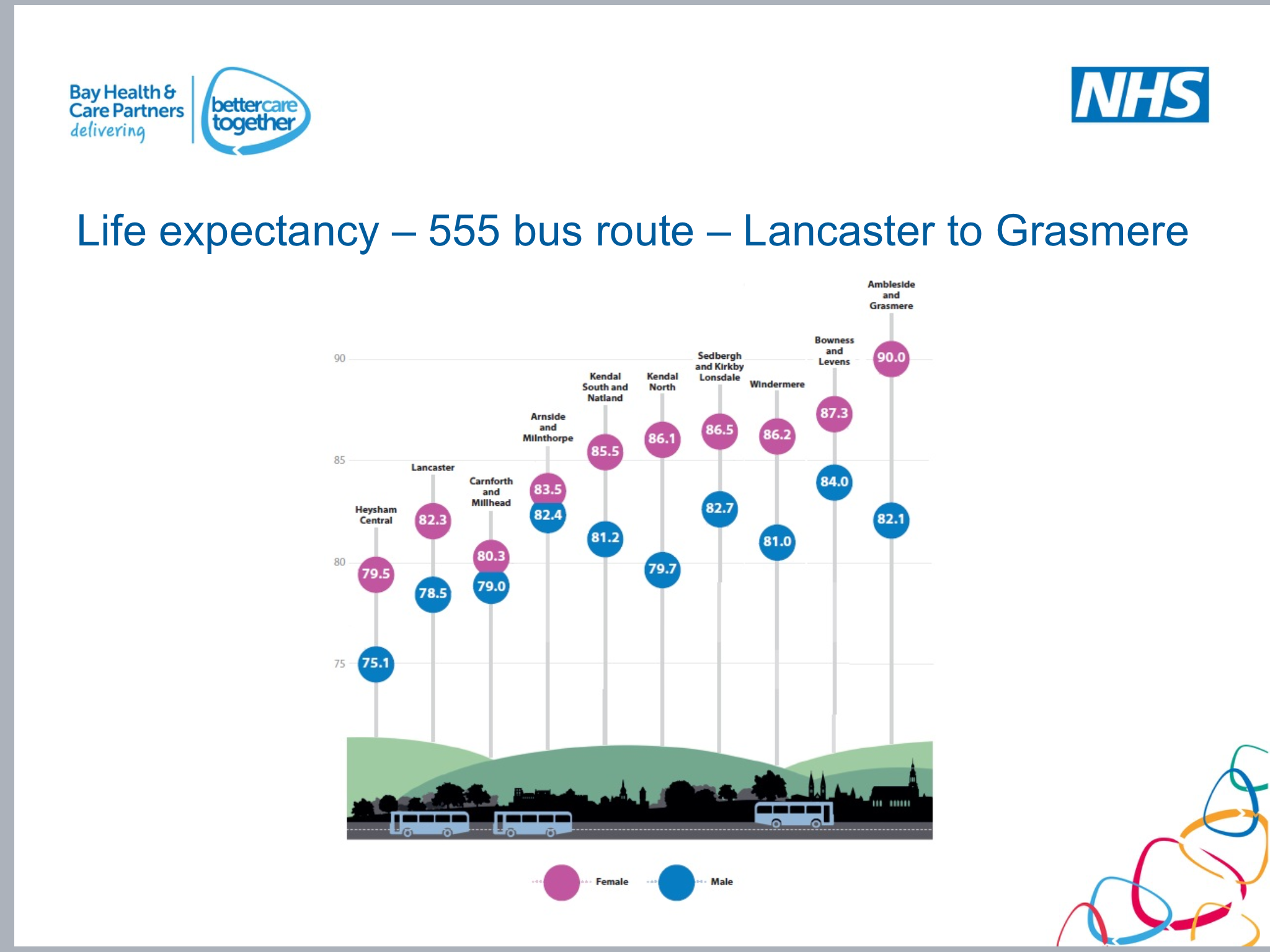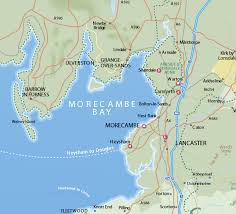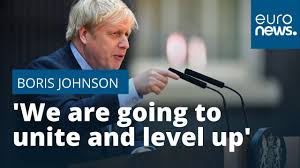It’s a while since I last wrote a blog. That’s because I’ve been concentrating on finishing my first book and there are only so many hours in a day! It is called ‘Sick Society’ and will hopefully be out soon.
However, now that it’s done, I will hopefully have a bit more time for blogging again.
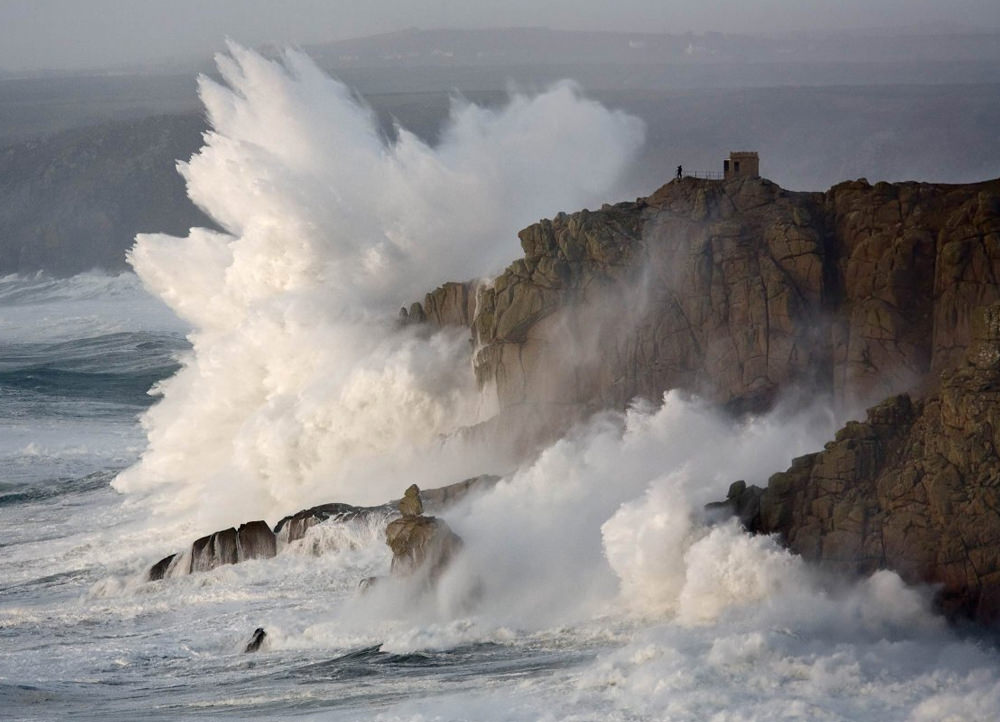 Last night, I awoke from a disturbing dream at around 0350h and wasn’t able to go back to sleep. I’ve had many troubling dreams of late – maybe I’m just processing. There have been plenty of tough situations to deal with at work recently, plus the backdrop of what feels like chaos. But I have learned over years to tune into my dreams, following the thread of them.
Last night, I awoke from a disturbing dream at around 0350h and wasn’t able to go back to sleep. I’ve had many troubling dreams of late – maybe I’m just processing. There have been plenty of tough situations to deal with at work recently, plus the backdrop of what feels like chaos. But I have learned over years to tune into my dreams, following the thread of them.
My dream last night consisted of two things: very rough, rising seas buffeting against the coast where I live and multitudes of people in refugee camps. I know exactly why I dreamt about them. Before bed last night, I listened, whilst my wife watched Episode 6 of Frozen Planet 2. A glaciologist, whom we both know, fairly well, was talking about his work. He is studying how the ice caps are melting at an alarming rate. I also read just before going to bed, an article about Greece and Turkey trading insults over the plight of 92 naked refugees, who had suffered utterly degrading treatment. My night was full of the angst of these two realities.
live and multitudes of people in refugee camps. I know exactly why I dreamt about them. Before bed last night, I listened, whilst my wife watched Episode 6 of Frozen Planet 2. A glaciologist, whom we both know, fairly well, was talking about his work. He is studying how the ice caps are melting at an alarming rate. I also read just before going to bed, an article about Greece and Turkey trading insults over the plight of 92 naked refugees, who had suffered utterly degrading treatment. My night was full of the angst of these two realities.
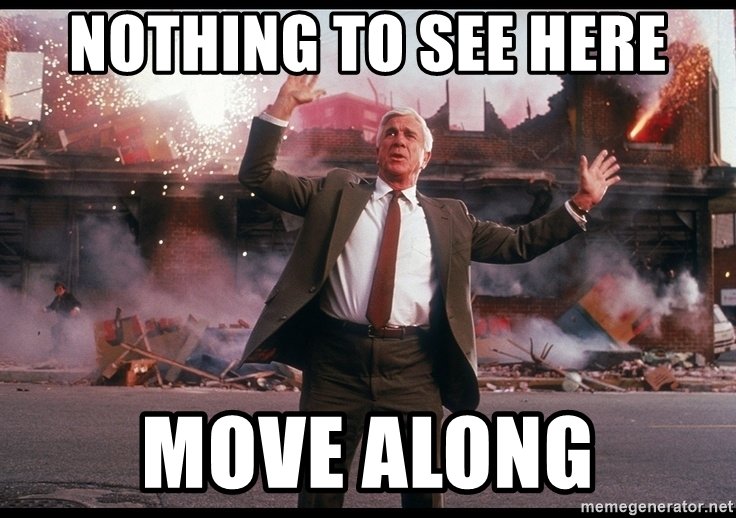 We find ourselves in an apocalyptic moment. An apocalypse is often thought to speak of the end of all things. Rather, in its truest sense, the word apocalypse simply means ‘to pull the lid off something’, or to reveal things for what they are. We live in a moment when perhaps more clearly than for a very long time, the facades which are held up to pretend that everything is ok, are well and truly down. Here in front of our naked eyes, we see the stark reality of the way things truly are.
We find ourselves in an apocalyptic moment. An apocalypse is often thought to speak of the end of all things. Rather, in its truest sense, the word apocalypse simply means ‘to pull the lid off something’, or to reveal things for what they are. We live in a moment when perhaps more clearly than for a very long time, the facades which are held up to pretend that everything is ok, are well and truly down. Here in front of our naked eyes, we see the stark reality of the way things truly are.
Consider the following:
The rate of climate change is accelerating with devastating consequences.
There are now 89.1million people being displaced globally, including 27.1million refugees. All the while, we draw up the bridge and threaten those who flee their war-ridden nations with deportation to places where we will not have to see them.
Global financial uncertainty, with market volatility, rising inflation rates and stalling economic growth is leading to rising poverty. The gap is widening between the richest and poorest, globally, nationally and regionally. The cost of simply living is becoming unaffordable.
Huge food insecurity is driving millions of people globally into poverty, with staggering problems around hunger, rising starvation, famine and drought.
Over a million species are at risk of extinction, with terrible consequences to our loss of biodiversity.
The toxicity of nationalism and sovereignty is laid bare through senseless war and the breaking of unions.
And governments, banks and global financial institutions look to placate and reassure the markets with the same old answers to the same old questions as if they will lead to radically different answers.
Our world is sick. Our society is sick. The storms are raging. And millions upon millions of people are crammed into the valley of decision.
How do we heal? How do we respond in the face of such devastation, brutality and madness? There is no other way, but that of faith, hope and love.
Faith, stares fully into the outrageous abyss of what the apocalypse reveals and refuses to accept that it will always be this way. Faith knows the markets and its associated economic theories do not hold the answers. Rather, it enables us to challenge the inevitability of the status quo and see that the world can and must be made new. Faith trusts that God is with us in the midst of the multiple crises and is bending the arc of history towards goodness, despite what the evidence may tell us. Faith knows that simple small acts of radical kindness, when multiplied a billion times around the globe, can bring about life-giving change.
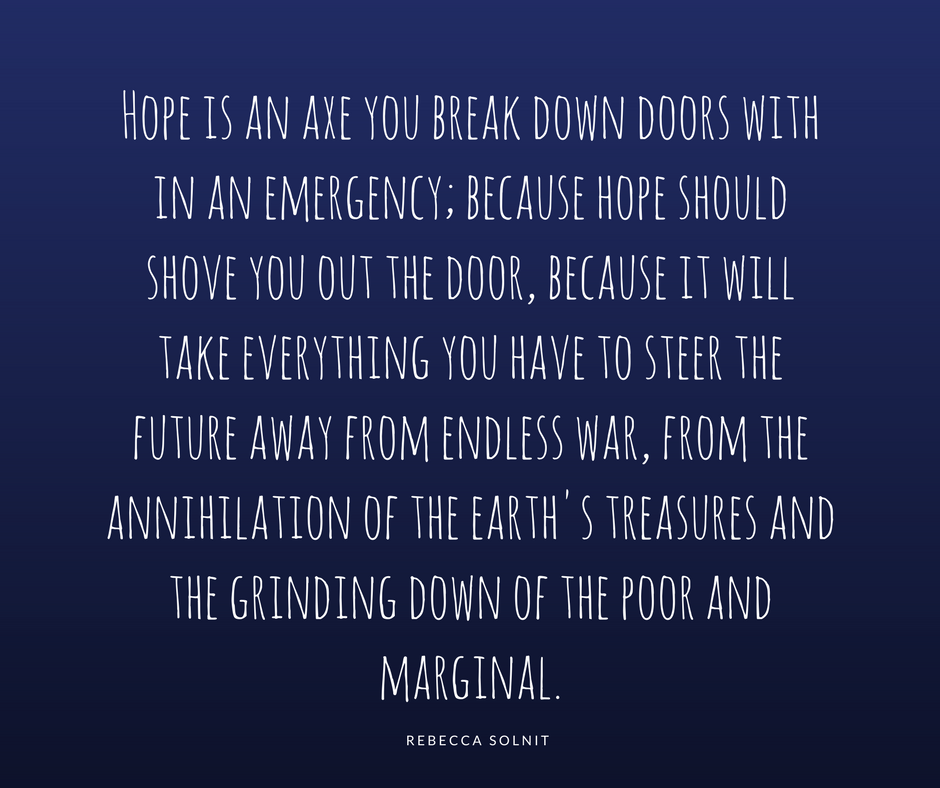 Hope helps us find a way together, even though it feels like we are too late or too far down the road to recover. Hope is not some kind of wishful thinking. It is, rather, as Rebecca Solnit reminds us, an axe we break down doors with, in an emergency. It is true that hope which is continually deferred makes our hearts sick. But hope that is coming is a tree of life and we must eat its fruit and allow it to infuse every cell in our beings. Now is not the time to lose hope.
Hope helps us find a way together, even though it feels like we are too late or too far down the road to recover. Hope is not some kind of wishful thinking. It is, rather, as Rebecca Solnit reminds us, an axe we break down doors with, in an emergency. It is true that hope which is continually deferred makes our hearts sick. But hope that is coming is a tree of life and we must eat its fruit and allow it to infuse every cell in our beings. Now is not the time to lose hope.
Love, as bell hooks tells us is a verb! It is gutsy, determined and action orientated. Love refuses to stigmatise. Love dares to cross the dividing lines. Love welcomes the stranger and embraces the needy. Love is humble enough to change. Love embraces the ‘enemy’ and lays itself down for the ‘other’. Love always trusts, always hopes and always perseveres. In the midst of the storm, only when we lock eyes with Love can we find the creative force needed to overcome the odds and build health and wellbeing in our communities and our ecology. Love never fails.
Whatever else we do, we must not turn our eyes away in this apocalyptic moment. Let the full pain and horror of this moment fully reveal the monstrous truth of the staggering injustice we have built through abusive power. Then let us turn our faces into the winds of change and set our sights on the future which is coming towards us. Let us throw off everything which hinders us and let us walk together into the way of peace.

